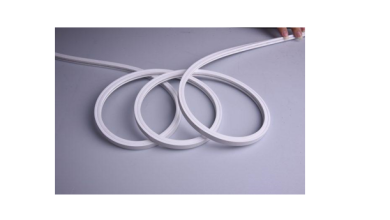Does scratching your head hurt your hair for good?

Introduction
There are many things to think about when it comes to keeping your hair healthy. People often worry about whether touching the head can damage the hair in a way that can’t be fixed. In this piece, we’ll talk about how scratching the scalp affects hair health, bust some myths, and give you tips for keeping your scalp and hair healthy. So, let’s dive in and find out what’s really going on when you scratch your head.
How the hair and scalp are made
To understand how scratching affects hair, you need to know how the head and hair are put together. The head is made up of layers of skin that have hair cells in them. There are sebaceous glands in every hair shaft. These glands make sebum, a natural oil that helps feed and protect the hair. Also, the hair cells get nutrients from tiny blood vessels, which helps them grow and stay healthy.
People scratch their heads to find out why.
When the head feels itchy, people often scratch at it. It can be caused by dryness, dandruff, eczema, psoriasis, allergic responses, or even worry. Even though scratching may give you brief relief, it’s important to know that it can cause damage to the skin and hair.
What Happens to the Scalp When You Scratch
Irritation and inflammation of the scalp
When you scratch your head often and hard, it can become irritated and inflamed. Scratching breaks down the protective layer of the skin, which lets bacteria and other germs into the head. This can cause swelling, pain, and sometimes even diseases. Conditions that cause inflammation of the head can also mess up the normal cycle of hair growth, which can affect the quality and amount of hair.
Split ends and damage to hair
When you scratch too hard, your hair can break and get damaged. The constant rubbing and pulling can weaken the hair shaft, which can lead to split ends, frizz, and breakage. Over time, this can lead to hair that is noticeably thinner and has less thickness.
Changes to the hair growth cycle
The hair growth cycle has three stages: the growing (anagen), the changing (catagen), and the sleeping (telogen) stages. If you scratch your head too much, you can mess up this cycle and cause your hair to fall out early. When hair cells are hurt over and over again, they may go into the telogen phase too soon.
Misconceptions People Have About Scratching
People have a lot of wrong ideas about how touching the head affects the health of the hair. It’s important to talk about these to make things clear.
People often think that scratching the head causes lifelong hair loss or baldness, but this is not true. But if you don’t treat the underlying scalp conditions that make you want to scratch, like extreme dandruff or scalp psoriasis, they can cause hair loss.
Consider the following tips to keep your skin and hair in good shape:
Cleansing and conditioning your hair regularly
Use a light shampoo to clean your head regularly to get rid of oil, dirt, and product buildup. Use a nourishing conditioner afterward to keep your hair soft and easy to style.
Gentle head Massage
Massage your head gently with your hands to increase blood flow and help your hair grow. This can help stop your skin from itching and make your hair cells healthier.
Avoid Using Styling Products Too Much
Using creams, sprays, and heat styling tools too much can cause soreness of the head and damage to the hair. Lessen how much you use them and choose options that are more natural and friendly.
Protecting Hair from the Environment
Keep your hair safe from hard external factors like the sun and bad weather. You can lessen the damage these things do to your hair by wearing a hat or using hair products that protect it.
Hair Supplements
Consider taking hair growth supplements for your hair if you find it difficult to receive all of the essential elements from the food you eat. Supplements such as biotin and collagen, for instance, can stimulate hair growth and improve its strength.
Getting help from a professional
If you have a persistently itchy scalp, a lot of hair loss, or any other signs that worry you, it’s best to talk to a physician or trichologist. They can correctly figure out what’s wrong with your skin and give you the right treatment or advice.
Conclusion
If you scratch your skin too much and too hard, it can hurt the health of your hair. It can cause itching of the scalp, redness, hair loss, and a change in the way hair grows. But it’s important to remember that scratching by itself doesn’t cause lasting hair loss or damage. By taking good care of your hair, treating any problems with your scalp, and getting professional help when you need it, you can keep your scalp healthy and improve the health of your hair as a whole.




